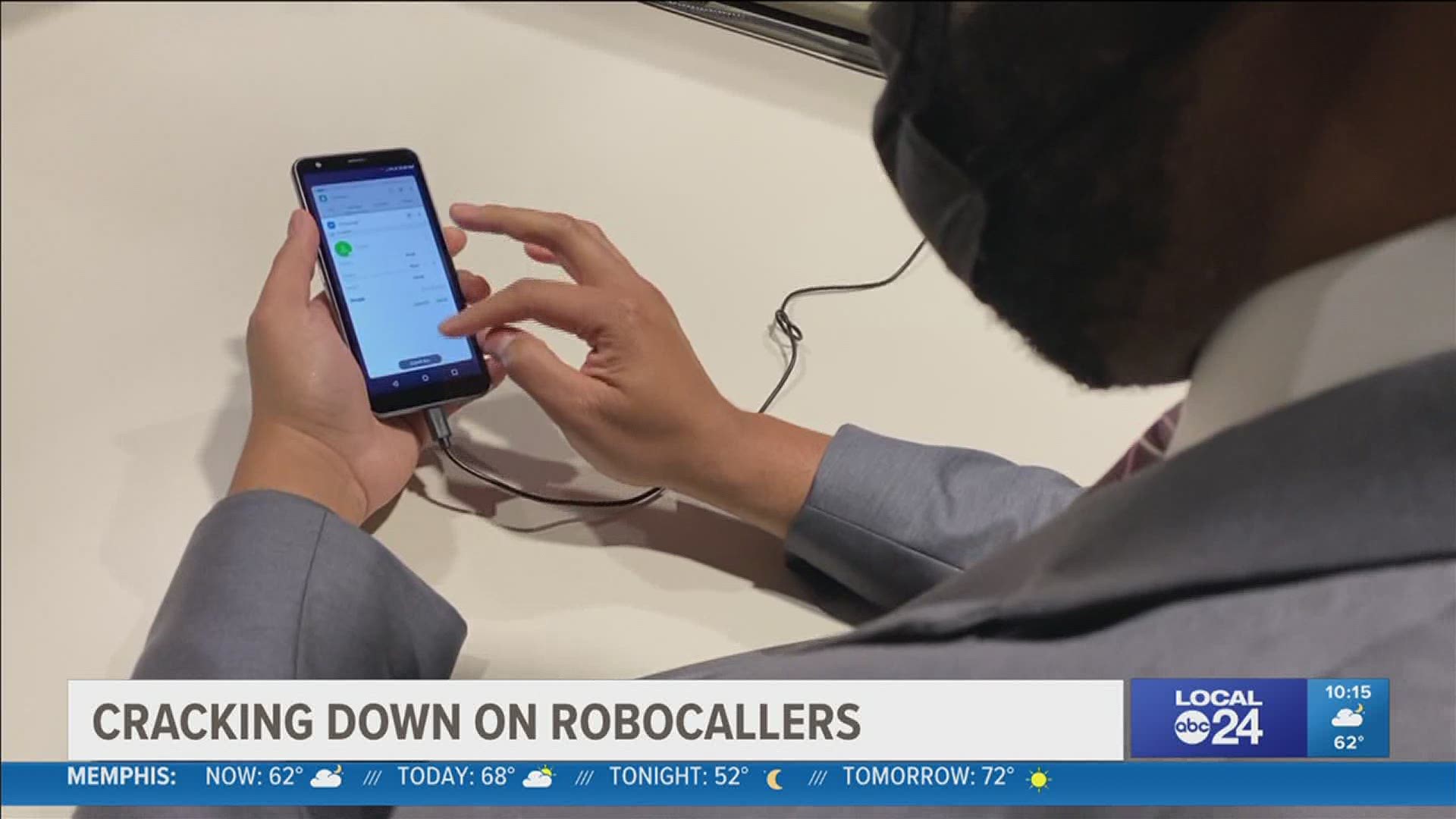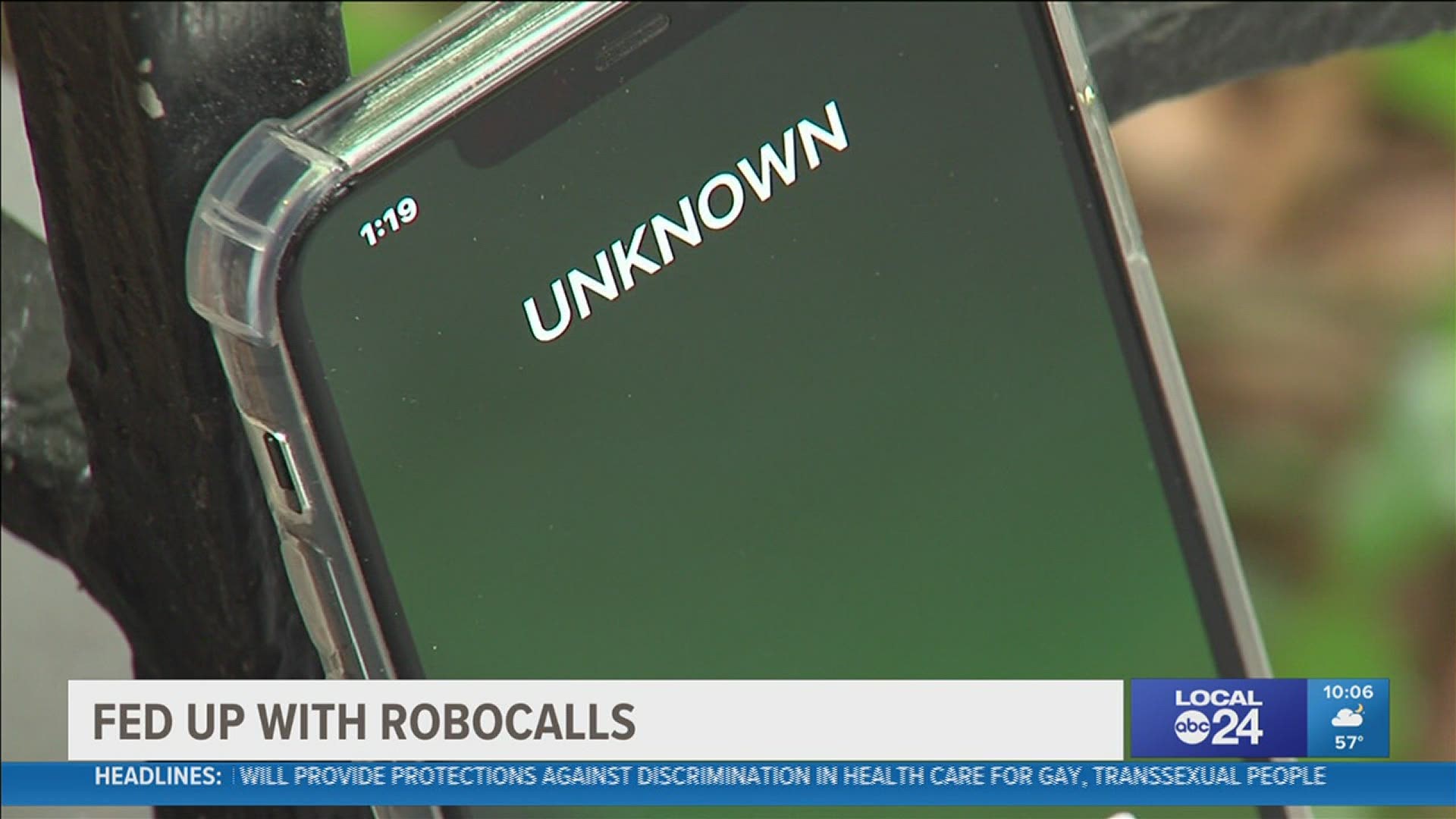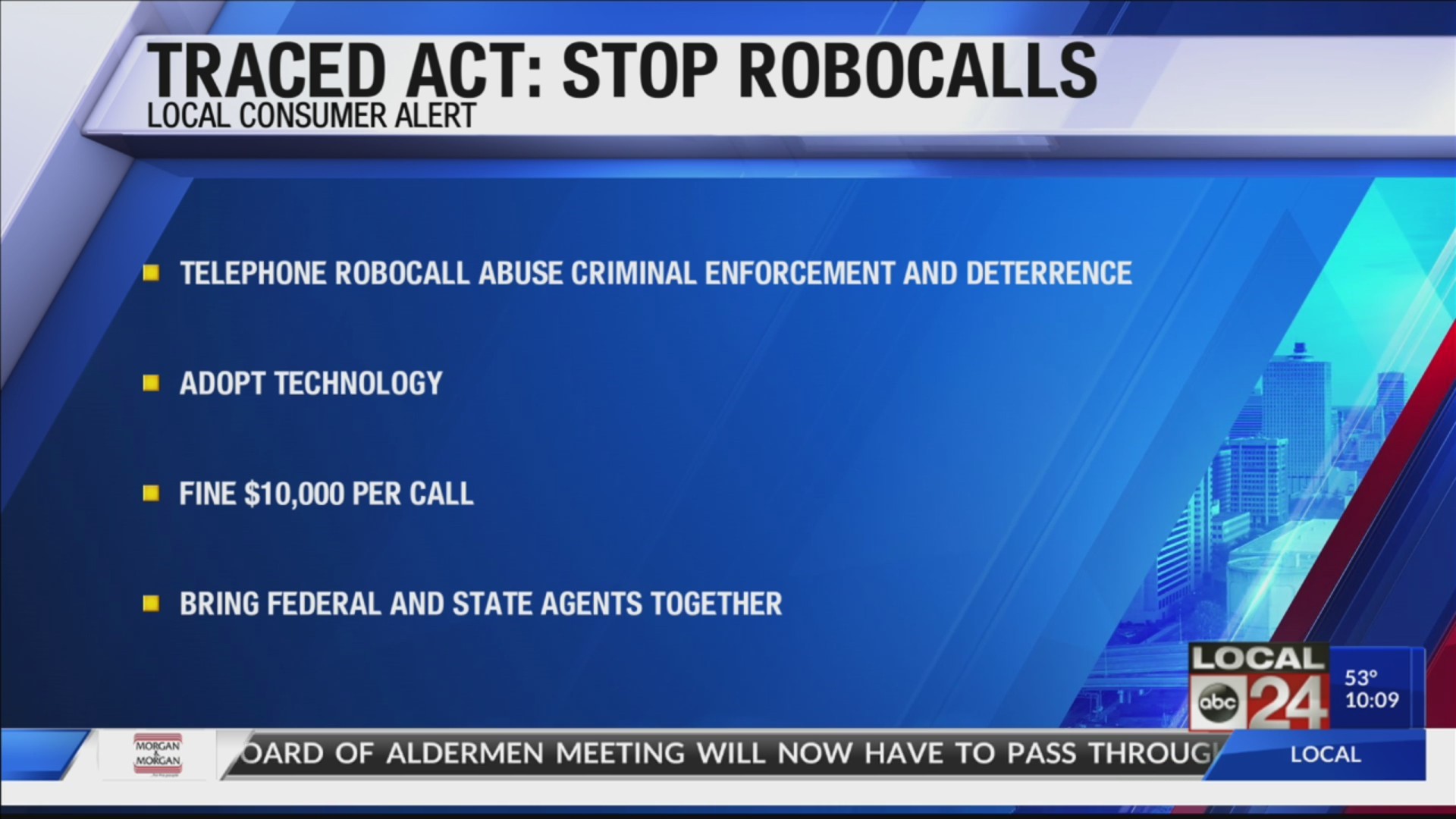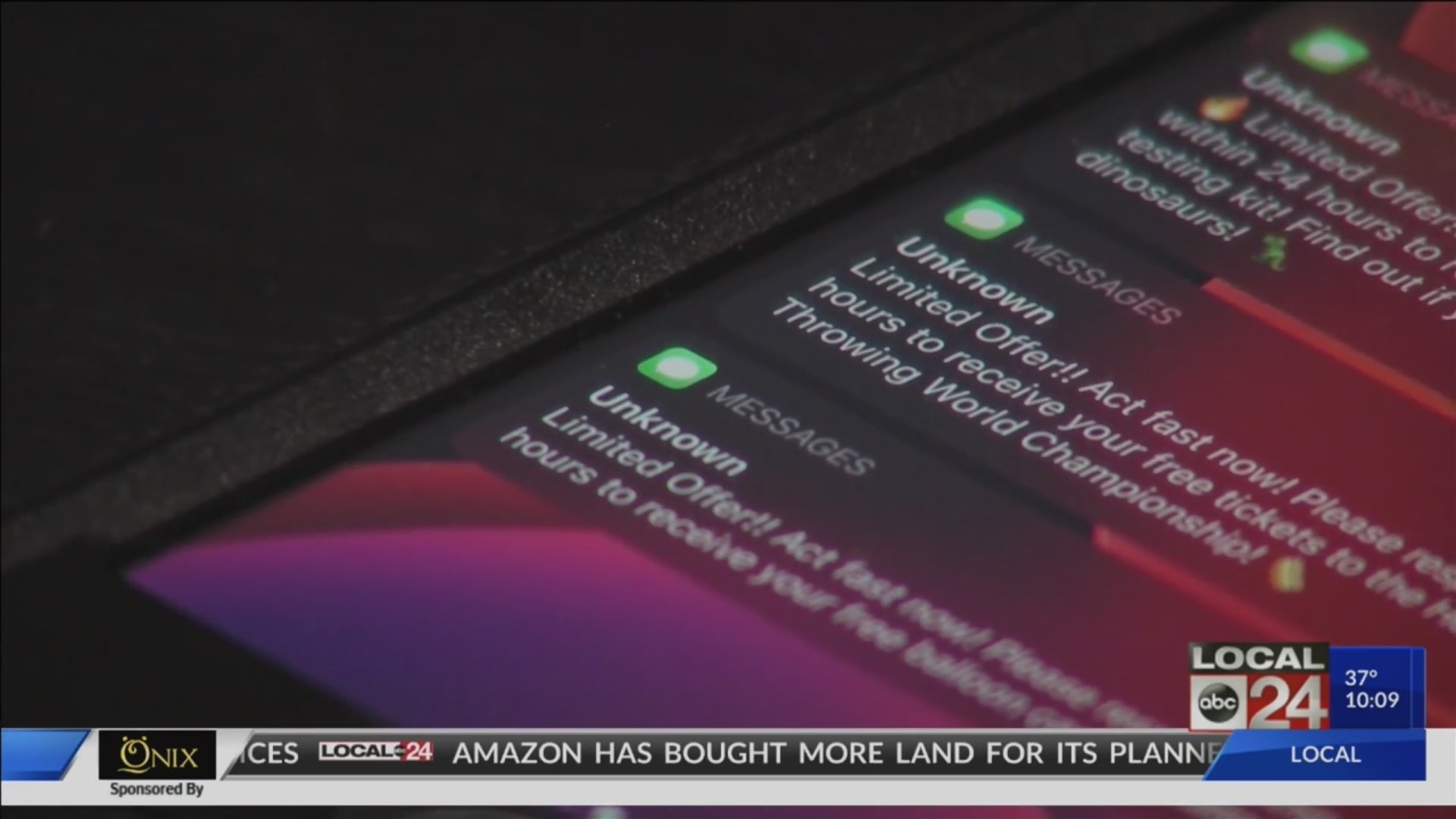MEMPHIS, Tenn. — To say Memphians and Mid-Southerners get a lot robocalls is putting it lightly.
According to Youmail.com, robocall index data showed, per capita, Memphis ranked second in the country for the top affected areas in April 2021.
Data showed more than half of the calls were from telemarketers and scams.
To gauge how big of a problem the calls are, Local 24 News joined 16 of our TEGNA sister stations across the country in purchasing brand new cellphones.
Our National Investigative team learned that simply buying a brand-new cellphone does not stop the robocall problem from happening.
The team found in some cases, the user hadn't ever placed a single call or text.

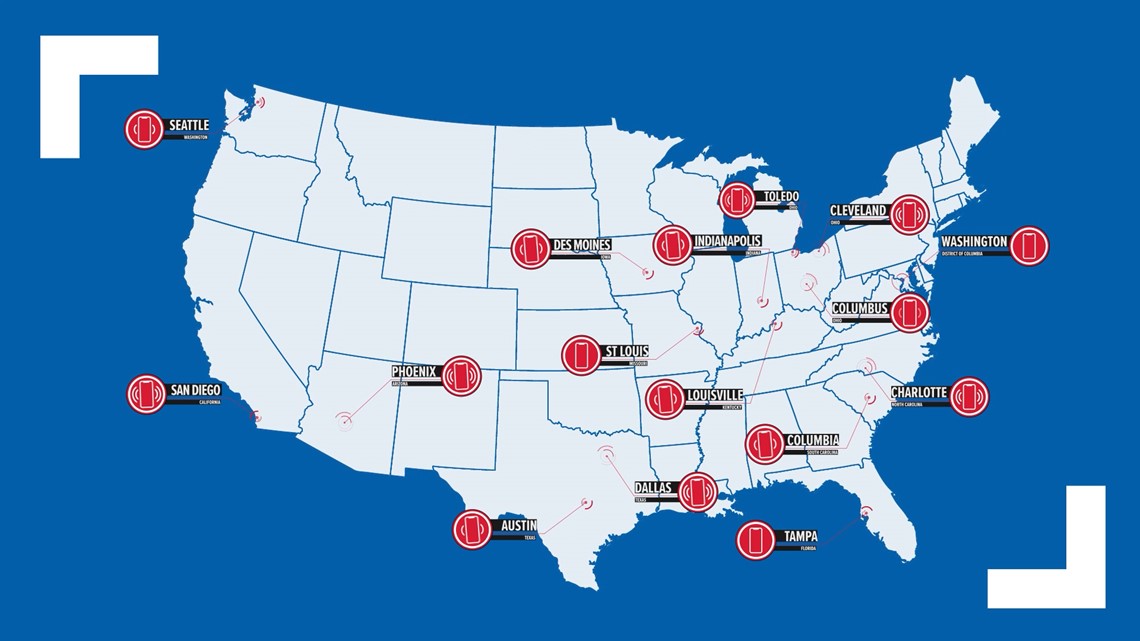
Local 24 News Anchor John Paul activated his phone in April.
Suspected spam from robocalls and texts arrived about 15 hours after getting a welcome text message from the mobile carrier.
Day after day, the calls and messages arrived one after another.

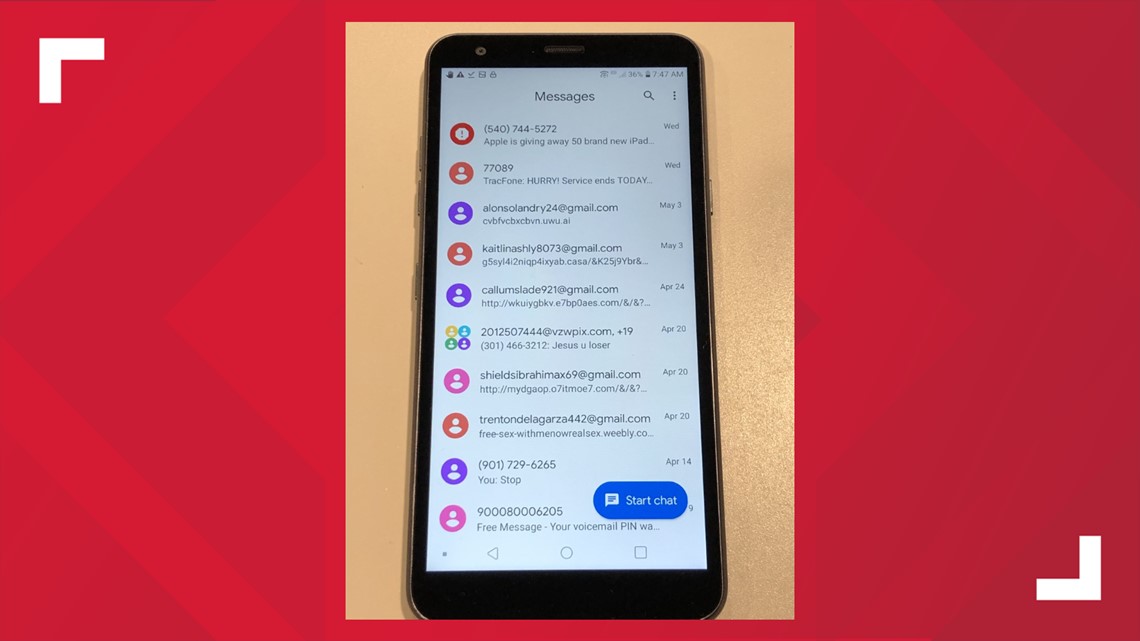
The Local I-Team also learned that trying to figure out who's behind the calls isn't easy either.
“So we wind up having people that make these telephone calls from other countries, and you can’t track them. You can’t enforce certain laws such as the TRACED act or the Telephone Consumer Protection Act (T.C.P.A) in order to stop them from doing illegal things," said Andrew Narod, Partner at Bradley Arant Boult Cummings, LLP.
Narod is a D.C. area attorney who represents businesses and helps them comply with the TCPA.
Narod said there are several other reasons why federal and state lawmakers and agencies are having a tough time cracking down on the calls and texts.
Because many of the callers are overseas, they’re not only hard to trace, but the Do Not Call registry and the TCPA telemarketing provisions do not apply to those calls.
Spoofing, or the use of a fake caller ID, is illegal in the United States, but it’s hard to enforce outside the country.
“It frustrates me greatly, and it frustrates my constituents and constituents all over America," said Democratic Congressman Steve Cohen.
In 2019, Congressman Cohen co-sponsored legislation that would create tougher laws and penalties for robocalls. While it passed the House, it still remains in the Senate.
Last year, former President Trump signed the bi-partisan TRACED act into law.
Both measures are similar - using tools and giving power to agencies to stop the calls.
Many parts of the law are being implemented right now.
“It’s at least an effort by the government to do what it can," said Narod.
He outlined a series of new efforts, including:
- The TRACED Act's one ring scam rules went into effect back in February.
- The FCC Caller ID authentication will go into effect in June.
- Fines will increase for robocalls from $1500 to $10,000 per call.
- The law requires the FCC to develop a system to inform you when you receive a spoofed or spam call.
"The FCC has to get some rules together, and that they’re supposed to have it in place by the first of July," said Cohen.
Experts agree, the TRACED act is a great effort, but the overseas issue - and it’s a big one - is not going away.
RELATED: How do robocalls work?
“It’s hard to enforce internationally and remote parts of the world, and so you wind up having people making those telephone calls from other countries, and you can’t track them," said Narod.
There are free and paid ways you can limit the number of robocalls and robotexts to your mobile phone.
COST-FREE WAYS TO LIMIT THE NUMBER OF ROBOCALLS TO YOUR MOBILE DEVICE:
- Free methods include reporting the robocallers and robotexts to the FCC.
- You can also get a list of call-blocking and labeling resources from your carrier.
- You can sign up for the Do Not Call list.
- YouMail has a free app to help you block robocalls.
HOW TO BLOCK CALLS ON YOUR PHONE:
Our Tegna National Investigation Team reports you can change the settings on your phone to block robocalls and robotexts.
iPhone Directions: Go into Phone App > Hit Recent > Next to the number select the i button circled on the right, Click "Block this Caller" on the bottom of the page
Android Directions: Go into Phone App > Select the three vertical dots in top right corner > Settings > Block Numbers > Recent > Select bubble on the left of the number you wish to block
ROBOCALL BLOCKING APPS
The TEGNA National Investigation Team also reported there are many robocall blocking tools in your phone's app store. The team recommends making sure you download a safe and trusted one.
Before downloading an app, make sure you read the privacy policy first.
According to Mashable, the top spam blocking apps are listed below, along with their costs.
- Hiya - Free basic service, with $2.99 per month for premium
- Nomorobo - $1.99 per month
- RoboKiller - $4.99 per month
- YouMail - Free basic service, $7.99 per month for Plus, $17.99 for business plan
- Call Control Home - A service for land line call blocking that costs $139.99.
- Truecaller - Free basic service, $4.49 per month for premium
- TrapCall - $5.99 per month for basic, $9.99 per month for premium

